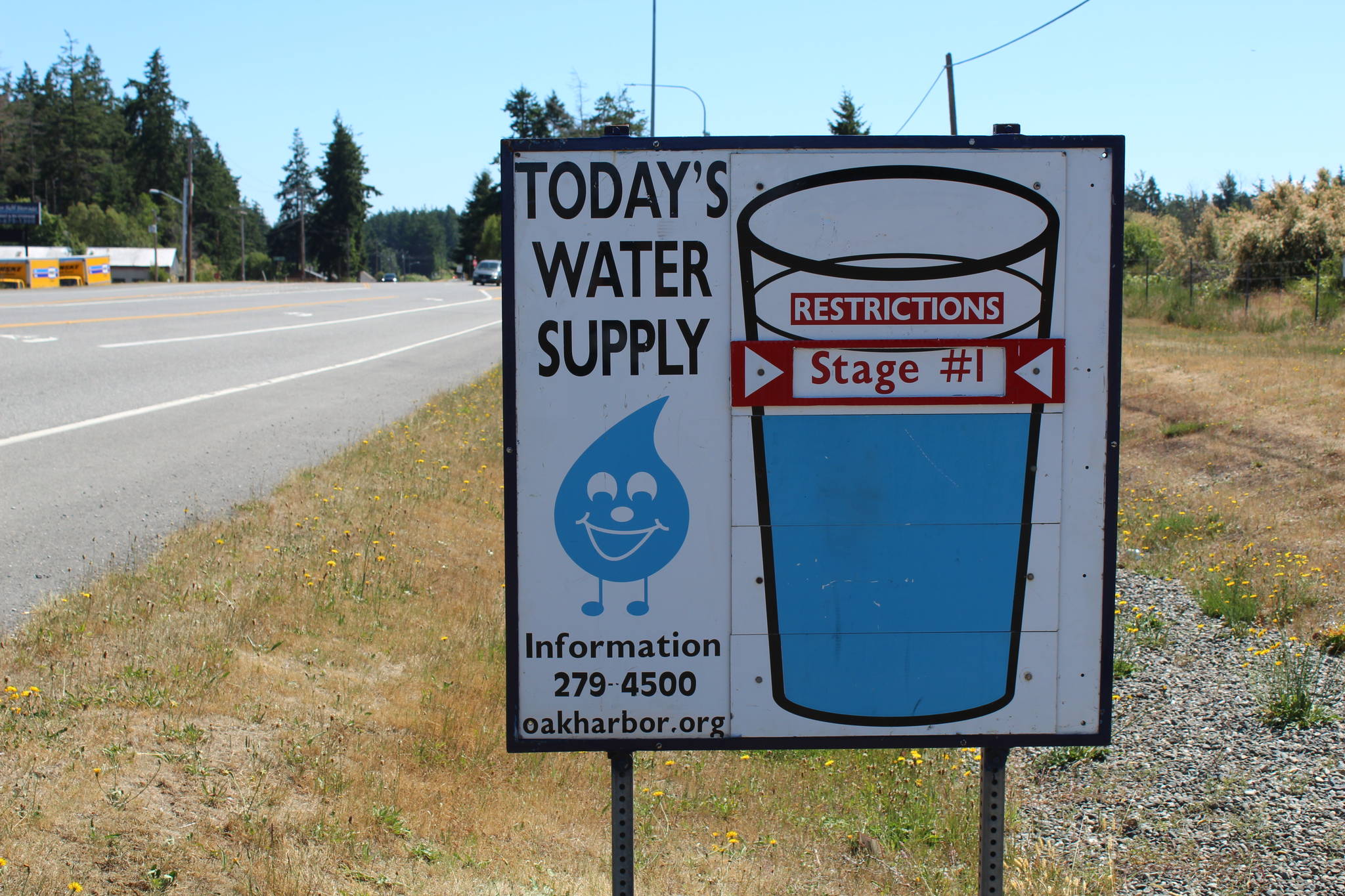North Whidbey residents have been asked to voluntarily reduce water usage because a regional chlorine shortage has threatened the water supply.
The City of Anacortes announced on June 17 that it was running low on chlorine. The chemical is used to produce sodium hypochlorite, a concoction used to kill bacteria and other unhealthy things in the water from the Skagit River. There have been no changes to water treatment so far and the water is currently safe to drink.
Anacortes owns a water right on the Skagit River and runs the plant that supplies water to Oak Harbor and Naval Air Station Whidbey Island, as well as La Conner and the two oil refineries, Marathon and Shell.
The effects of a major electrical failure at Westlake Chemical in Longview, Wash., a plant that supplies chlorine to local water and sewer utilities, have been felt throughout Washington, Oregon, Idaho and Northern California. A fire at a chlorine plant in Louisiana last summer has also disrupted the national supply of chlorine.
Oak Harbor’s neighboring city has asked customers to conserve water, but Anacortes Public Works Director Fred Buckenmeyer said people do not need to stock up on bottled water.
“We want people to be prepared, but we don’t need a run on grocery stores,” Buckenmeyer said.
He does, however, encourage people to have a “normal” emergency stash of water at home. He suggested following the Federal Emergency Management Association’s guidance of one gallon per person per day for two weeks. In case someone cannot store that much water, FEMA advises to store as much as they can.
The Anacortes treatment plant currently has enough chlorine to supply 11 days of normal water usage if no conservation measures were imposed, Buckenmeyer said. That should last until Westlake Chemical is up and running, he added.
Buckenmeyer said the city was expecting smaller shipments of chlorine this week, which should help extend the 11-day supply along with voluntary water conservation efforts.
Oak Harbor was in Stage 1 of water restrictions as of Monday afternoon, according to a water supply sign near the entrance to the city. Stage 1 asks for voluntary water reduction.
There are three stages.
Buckenmeyer said that cities have planned for water shortages because of environmental factors or equipment failures, but not for this situation.
“There is plenty of water in the river,” he said. “We never really planned for a national shortage of chlorine.”
A boil water advisory would be the last resort, which Buckenmeyer said is not likely at this time. Customers would be notified in advance if a boil water advisory were to come.
Buckenmeyer encouraged people to check anacorteswa.gov for updates or the city’s social media pages.



